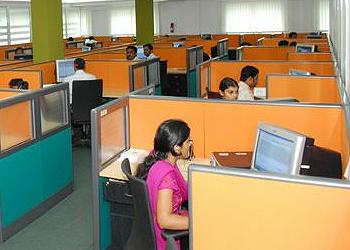
NEW YORK, New York, April 1, 2014 (ENS) – A new global program was launched today that aims to harness the trillions of dollars that governments spend each year on procurement of everything – from computers to food to travel – to fund a more resource-efficient, low-carbon world.
The new Sustainable Public Procurement Programme aims to help governments redirect public spending to purchase goods and services that bring environmental and social benefits by expanding knowledge and access to experts and tools.

The initiative is co-led by the UN Environment Programme, the Korea Environmental Industry and Technology Institute, and ICLEI – Local Governments for Sustainability.
UNEP Executive Director Achim Steiner explained how public procurement can amount to trillions of dollars a year. “The Organization of Economic Co-operation and Development nations spent an average 13 percent of Gross Domestic Product on public procurement in 2011, while in some developing nations this can hit 20 percent. This adds up to trillions of dollars globally, demonstrating the scale of the opportunity ahead.”
“Governments can use this potential to lead markets onto a sustainable path by demanding goods and services that conserve natural resources, create decent green jobs, and improve livelihoods around the globe,” said Steiner.
The Sustainable Public Procurement Programme is supported by the European Commission, the Swiss Federal Office for the Environment, the China Ministry of Environmental Protection, South Korea, ISEAL Alliance, the Organization for Economic Co-operation and Development, the Swedish Ministry of the Environment, and the U.S. Environmental Protection Agency.
In the United States, where the federal government buys goods and services worth more than $500 billion a year, the federal government has incorporated sustainability requirements into purchasing regulations. Nearly all new contracts must be for products and services that are energy-efficient and water-efficient, environmentally preferable, non-ozone depleting, and contain recycled content.

The Sustainable Public Procurement Programme is the first in a host of actions to be taken this year as part of the 10-Year Framework of Programmes on Sustainable Consumption and Production, 10YFP.
The 10YFP was established after world leaders at the UN’s 2012 conference on sustainable development, Rio+20, agreed that sustainable consumption and production is a cornerstone of sustainable development, poverty alleviation and the transition to low-carbon and green economies.
Gino Van Begin, secretary general of ICLEI, which represents cities and municipalities around the world, describes how 10YFP can be effective. “If public money is spent on products and services that reduce environmental impacts, encourage social improvement and achieve financial efficiency,” he said, “a huge step forward could be made towards sustainable development. This is what the 10-Year Framework Programme on Sustainable Public Procurement aims to achieve.”
The Republic of Korea, usually called South Korea, has installed sustainable public procurement policies for the near future.
“The Republic of Korea has gained strong expertise in the implementation of green public procurement based on an electronic monitoring system over the past 10 years,” said Yongjoo Kim, president of KEITI. “We wish to contribute to the program, in close partnership with UNEP and ICLEI, by identifying and disseminating good practices.”
Existing initiatives demonstrate that sustainable procurement transforms markets, boosts eco-industries, saves money, conserves natural resources and fosters job creation.

For instance, India’s latest procurement policy makes it mandatory for central government offices to source 20 percent of everything that they need from micro and small businesses.
Indian Railways replaced more than one million incandescent light bulbs with energy-efficient fluorescent lamps in 400,000 employees’ homes, saving more than 100,000 megawatts of energy and reducing carbon dioxide emissions by 90,000 tonnes each year.
In Brazil, the Foundation for Education Development saved 8,800 cubic metres of water and 1,750 tonnes of waste by using notebooks made from recycled paper in Sao Paulo schools.
In France, a contract for the purchase of toner cartridges was awarded to an organization that, between 2009 and 2011, recovered 11,500 kilograms of waste, saved the government 30 percent in costs and created nine full-time jobs for disabled people.
Chile’s public procurement and contracting bureau set a target of 15 percent of procurement orders meeting sustainability targets by 2012. This goal was fulfilled a year ahead of schedule. The bureau oversees US$8 billion in transactions, accounting for more than 3.2 percent of GDP.
In Japan, where government agencies spend US$672 billion a year, or 17.6 percent of GDP, green purchasing laws now require ministries, provisional governments and an increasing number of cities to make 95 percent of their purchases from designated “green product” categories.
By working to ensure such purchasing decisions are the norm, not the exception, the Sustainable Public Procurement Programme aims to play a vital role in transitioning the globe to an inclusive green economy.
The launch comes ahead of the first UN Environment Assembly set for June 23-27, when the world’s environment ministers will meet to discuss the post-2015 Sustainable Development Agenda, with a special focus on sustainable consumption and production.
“A rapid transformation, which will support the post-2015 Sustainable Development Agenda, is eminently possible,” said Steiner. “Governments from across the globe signed up to the UNEP-led Sustainable Public Procurement Initiative at Rio+20, and are backing this commitment with action. This demonstrates that the political will is already in place.”
Copyright Environment News Service (ENS) 2014. All rights reserved.
© 2014, Environment News Service. All rights reserved. Content may be quoted only with proper attribution and a direct link to the original article. Full reproduction is prohibited.
